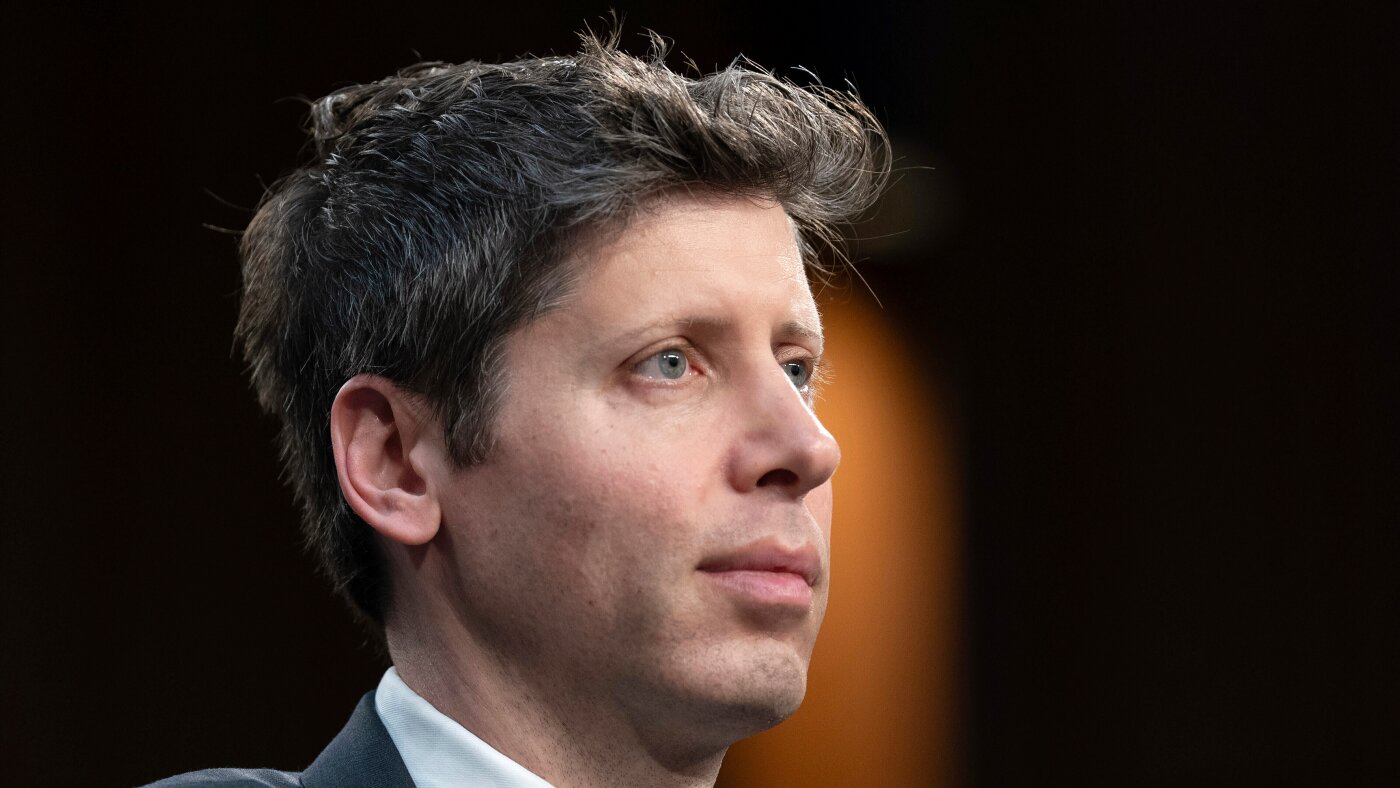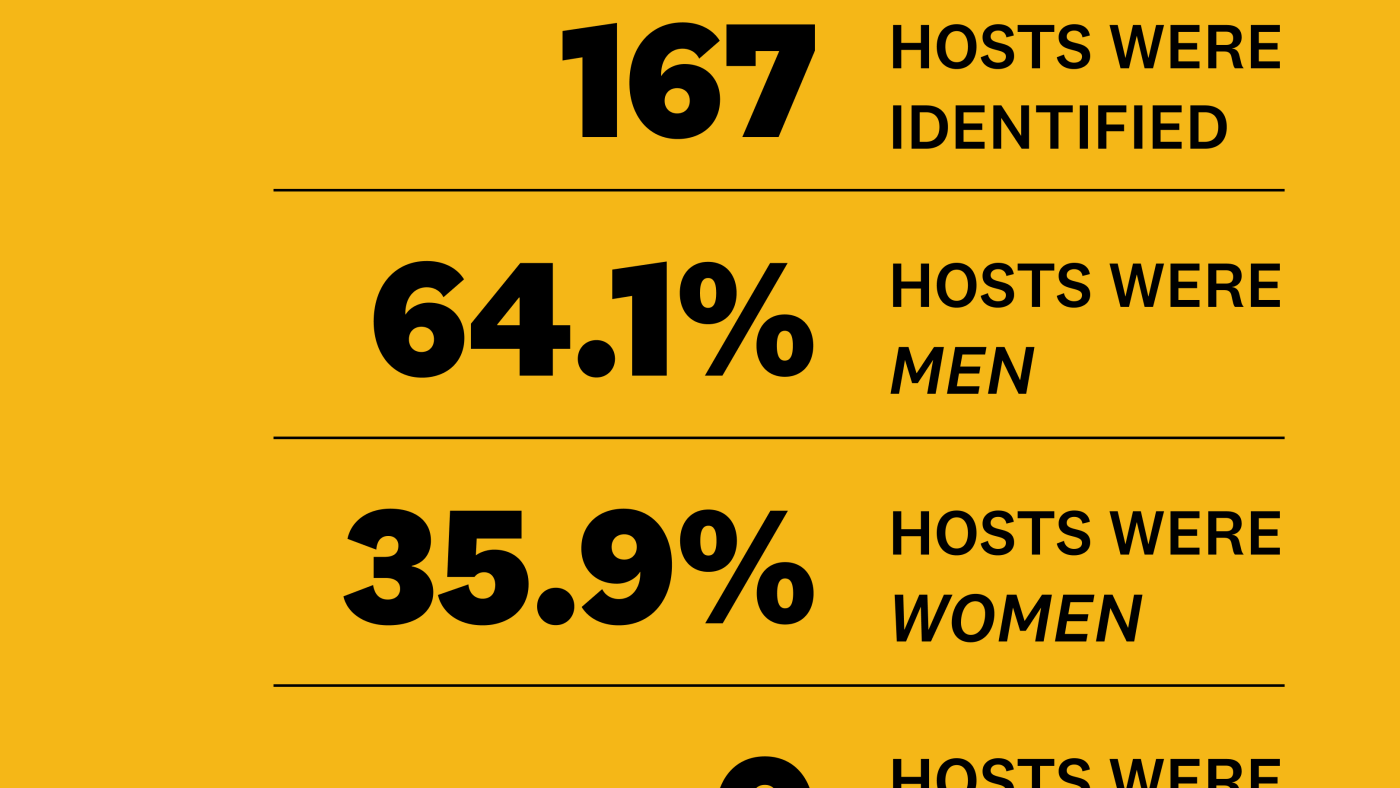
Two ICE agents film the press using smartphones in the hallway outside the immigration court at 26 Federal Plaza in New York USA on July 11 2025. The Department of Homeland Security has been acquiring new tools to identify people and monitor them. Madison Swart /Hans Lucas via AFP/Getty Images hide caption
toggle caption
Madison Swart /Hans Lucas via AFP/Getty Images
Immigration and Customs Enforcement (ICE) is acquiring powerful new surveillance tools to identify and monitor people.
They include apps that let federal agents point a cell phone at someone's face to potentially identify them and determine their immigration status in the field, and another that can scan irises. Newly licensed software can give "access to vast amounts of location-based data," according to an archive of the website of the company that developed it, and ICE recently revived a previously frozen contract with a company that makes spyware that can hack into cell phones.
The federal agency is also ramping up its social media surveillance, with new AI-driven software contracts, and is considering hiring 24/7 teams of contractors assigned to scouring various databases and platforms like Facebook and TikTok and creating dossiers on users.
The Trump administration is seeking to employ new technology as it tries to boost deportations to a million a year, a target that could be helped with tech to identify and locate noncitizens subject to removal.
Some Democratic members of Congress are raising legal concerns about the new technologies and are asking questions of ICE that are going unanswered. A group of U.S. senators have called on ICE to stop using a mobile facial recognition app.
"Americans have a right to walk through public spaces without being surveilled," Democratic Sen. Edward Markey of Mass. told NPR.
Privacy and civil liberties advocates also warn these surveillance tools represent a grave threat and say there is not a sufficient regulatory framework in place or oversight to ensure federal agents are using new technologies in a way that protects privacy and constitutional rights.
"Immigration powers are being used to justify mass surveillance of everybody," said Emily Tucker, the executive director of the Center on Privacy and Technology at Georgetown Law.
"The purpose of this is to build up a massive surveillance apparatus that can be used for whatever kind of policing the people in power decide that they want to undertake," she said.
Scanning Teens' Faces
The way ICE and Border Patrol agents use these technologies was on display in a video posted to TikTok last month by an account in Aurora, Ill. The video appears to show a group of masked Border Patrol agents as they jump out of an SUV and approach two young people on bikes on the sidewalk near East Aurora High School. The agents ask them their citizenship and to show ID.
One of the young men, who is filming the incident and does not appear on camera, says he is 16 and is a U.S. citizen but does not have an ID.
"Can you do facial?" an officer is heard asking. Another officer then takes out a cell phone and points it as if taking a photo. He then asks the young person's name and the video ends shortly after that.
The person who posted the video did not respond to a message but said in comments on the post that the video was of their cousins. NPR was able to verify the location where the video was shot.
It is not clear which app the officer used. ICE has a mobile facial recognition app known as Mobile Fortify that uses images of people's faces and fingerprints to try to identify people in the field. A Department of Homeland Security document says the app searches for matches against Customs and Border Protection databases, including photos taken when people enter and exit the U.S., and can return information like a subject's name, birth date, alien number, possible citizenship status and "Possible Overstay Status."
In another section of the document, it says ICE will receive "limited biographic data" if the individual matches a photo from a specific list of targets, called the "Fortify the Border Hotlist," and non-matches "will not return any additional information."
It also says individuals cannot decline to be photographed, and that photos are stored for 15 years, even if there is no match.
The existence of the app and documentation on how it works were both first reported by 404 Media, which obtained the DHS document through a Freedom of Information Act request.
This week, the outlet also reported that Customs and Border Protection made a different facial recognition app, Mobile Identify, available on Google's app store for state and local law enforcement agencies that are deputized to work with ICE.
David Bier, director of immigration studies at the libertarian Cato Institute, called it a "big leap" that DHS now can have agents in the field simply point their phone at someone's face and instantly learn details about them.
"The whole idea of anonymity in public, it's really gone when the administration or the government can immediately identify who you are," Bier said, adding that this technology could have a chilling effect on people's willingness to attend public protests.
A group of Democratic senators, led by Markey, called on ICE in September to stop using the technology and answer questions about its use. ICE did not respond to their questions and the senators renewed their demand on Monday.
"This type of on-demand surveillance is harrowing and it should put all of us on guard," Markey told NPR. "It chills speech and erodes privacy. It ultimately undermines our democracy."
In their letter, the senators ask a long list of questions, including the legal basis to use the app, how it was developed, whether U.S. citizens are included in the database of photos the app matches to, whether there are policies for using it to identify U.S. citizens and if it has been used to identify protesters and minors.
Markey told NPR facial recognition is unreliable, especially for people of color, and expressed concern the Trump administration would "weaponize that technology against anyone who disagrees with the government."
Neither ICE or DHS responded to NPR's specific questions about mobile facial recognition apps.
An ICE spokesperson said in a statement, "Nothing new here. For years law enforcement across the nation has leveraged technological innovation to fight crime. ICE is no different. Employing various forms of technology in support of investigations and law enforcement activities aids in the arrest of criminal gang members, child sex offenders, murderers, drug dealers, identity thieves and more, all while respecting civil liberties and privacy interests."
DHS sent a statement that said, "While the Department does not discuss specific vendors or operational tools, any technology used by DHS Components must comply with the requirements and oversight framework."
The growing use of facial recognition technology comes as DHS published a proposed rule that would expand the agency's ability to ask for biometric data from noncitizens and their U.S. citizen relatives when they apply to adjust their immigration status, such as to obtain a green card or citizenship. Under the rule, the agency could ask for facial images, iris scans, finger and palm prints, voice prints and even DNA.
The public has an opportunity to comment on the rule until early January.
Spyware delivered by text
In August, the Trump administration revived a previously paused contract with Paragon Solutions, an Israeli-founded company that makes spyware. A Paragon tool called Graphite was used in Europe earlier this year to target journalists and civil society members, according to The Citizen Lab, a research group based at the University of Toronto with expertise in spyware.
Little is known about how ICE is using Paragon Solutions technology and legal groups recently sued DHS for records about it and tools made by the company Cellebrite. ICE did not respond to NPR's questions about its Paragon Solutions contract and whether it is for Graphite or another tool.
Graphite can start monitoring a phone — including encrypted messages — just by sending a message to the number. The user doesn't have to click on a link or a message.
"It has essentially complete access to your phone," said Jeramie Scott, senior counsel at the Electronic Privacy Information Center (EPIC), a legal and policy group focused on privacy. "It's an extremely dangerous surveillance tech that really goes against our Fourth Amendment protections."
Adding to an already robust surveillance infrastructure
DHS has been steadily expanding its surveillance capabilities under both Republican and Democratic administrations since its founding in the wake of 9/11.
As of 2022, a report by Georgetown Law's Center on Privacy and Technology found ICE could locate three out of four U.S. adults through utility records and had scanned a third of adult Americans' driver's license photos.
But Georgetown's Tucker, who co-authored the report, said the situation is more dramatic now because of the Trump administration's aggressive posture on immigration enforcement and willingness to push legal boundaries.
"Even if there weren't robust laws and regulations for rights protection, there were some norms that were seen as not really transgressible basically by all the presidential administrations up until that point," Tucker said of the situation a few years ago. "Not only are the norms gone, but this administration is willing to break whatever laws do exist."
NPR's Martin Kaste contributed to this report.
Reach out to Jude Joffe-Block through encrypted communication on Signal at JudeJB.10

 3 months ago
80
3 months ago
80




















































